Studying the history of religion is a gateway to more than just an understanding of religious institutions. It also offers a glimpse at the spread of civilizations. Since the beginning of time, religion has been a significant influence on our cultures, going so far as to shape our traditions, our behavior, and even our concept of time.
Whether you’re devoted to your faith or haven’t stepped foot inside a place of worship, the following books dive into the pasts of Christianity, Judaism, Buddhism, and more—while also opening a door into the history of the world.
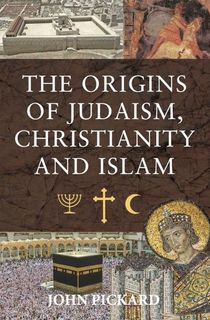
The Origins of Judaism, Christianity and Islam
It’s common knowledge that Judaism, Christianity, and Islam, collectively known as the Abrahamic religions, share similarities between them. In this book, John Pickard tests the limits of that statement from a secular perspective. He looks toward contemporary social, political, and economic factors to explain what external conditions allowed three major world religions to emerge. This book is a fascinating introduction to world religions and equally as fascinating to those who take the shared origin of these religions for granted.
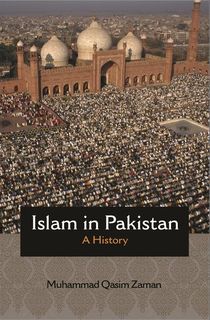
Islam in Pakistan
This book takes a comprehensive approach to the modern history of Islam in the world’s second-largest Muslim nation by population, from the British colonial period to the present. The first country to be founded in the name of Islam, Pakistan has played a crucial role in regional politics and religious discourse, supporting Muslim allies through major struggles like the Soviet occupation of Aghanistan and nurturing traditionalist and progressive Islamic thinkers alike.
Author Muhammad Qasim Zaman paints a rich and detailed portrait of a country for which Islam has been pivotal to its development, and which has been pivotal to Islam’s development in turn.

Christianizing Egypt
How did Egypt, with its ancient and rich mythological tradition, come to adopt Christianity? That is exactly the question religious scholar David Frankfurter seeks to answer in Christianizing Egypt. Frankfurter pores over sermons, mystical texts, saints’ lives and figurines, letters, and amulets from Egypt in late antiquity to provide an updated account of the process of Christianity’s introduction to Egypt.
He compares that process to the Christianization of other territories in the Roman Empire and beyond, drawing fascinating new conclusions about the nature of Christianity’s adoption by specific social and creative communities in one of the world’s oldest major civilizations.
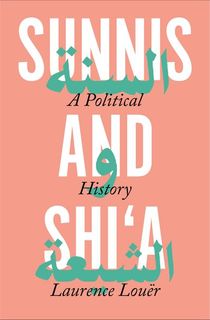
Sunnis and Shi'a
Laurence Lour charts the course of a major schism within the Islamic faith which has been both underestimated and overblown at different points in time. The split between the Sunni and Shi‘a faiths began with the death of the Prophet Mohammed in 632, with two distinct sects emerging from a dispute over who was to be his heir. Centuries later, the divide remains.
Laurence Lour challenges common misconceptions about the split, arguing that at its core is not a succession dispute, but a fundamental disagreement over the nature of Islamic political authority. Moreover, she elaborates on the political and hegemonic forces that benefit from deepening a schism that is not so vicious nor so insurmountable as it is often made out to be. From the 7th century CE to the present day, Laurence Lour offers offers a detailed and nuanced account of a complicated matter too often perceived by outsiders, especially in the West, as black and white.
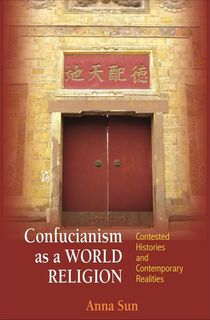
Confucianism as a World Religion
In the late 19th century, scholars Friedrich Max Müller and James Legge classified Confucianism as a world religion within the emerging discipline of comparative religion, shaping the way Westerners would come to view the philosophy over a century. Yet in China, most people think it isn’t a religion at all. Why the discrepancy?
In Confucianism as a World Religion, Anna Sun charts the course of the philosophy's development and perception, drawing upon everything from ancient Confucian temples, to 19th-century archives, to the first-hand testimony of people gathered over an entire decade. She examines how Confucianism’s status as a world religion changes based on hemisphere, time period, and even the needs of the government.
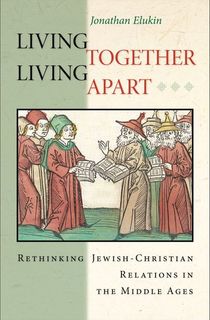
Living Together, Living Apart
The Middle Ages is commonly conceptualized as a time of persecution for European Jews. In this book, Jonathan Elukin, a professor of medieval history and Jewish studies at Trinity College, challenges that idea.
Elukin introduces readers to a medieval Europe where Jews and Christians largely coexisted peacefully. He asserts that outbursts of violence were largely due to the policies of particular Christian rulers, rather than reflections of universal attitudes; at the quotidian level, life among Christians and Jews was characterized by symbiotic cohabitation.
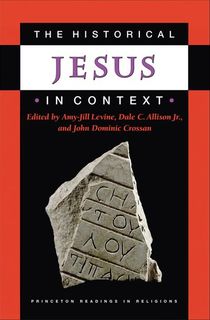
The Historical Jesus in Context
This groundbreaking book is your comprehensive guide to Jesus as a historical figure, detached from his religious significance.
Drawing directly from new translations and interpretations of primary sources like pagan prayers, fables, divorce documents, government propaganda, and more, 25 internationally recognized scholars piece together a picture of the man behind the world’s largest religion, as well as the larger sociopolitical context in which he operated. An investigation that has, until now, existed in disparate texts finds a comprehensive home in The Historical Jesus.
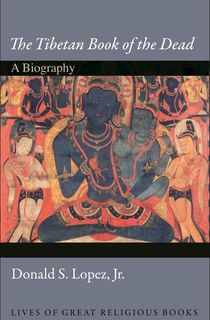
The Tibetan Book of the Dead
If there is one takeaway from this book, it’s this: the most famous and revered Buddhist text among Westerners is “not really Tibetan, it is not really a book, and it is not really about death.” Acclaimed writer and scholar of Buddhism Daniel Lopez tells the tale of how the pseudo-spiritualism of a New Jersey man who had never visited Tibet and had no knowledge of the language spiraled into a Western spiritual phenomenon.
Despite its proliferation in the West, The Tibetan Book of the Dead’s cohesion is largely fabricated, pieced together from a series of obscure Buddhist texts and shoddily translated with an American understanding of spiritualism in mind. Readers will be fascinated by the trajectory of this so-called sacred text, the translated content of which reflects uniquely American attitudes as much as its creation story does.
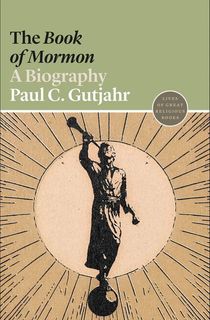
The Book of Mormon
A history of the Mormon religion as told through the sacred text at its core, The Book of Mormon: A Biography enlightens readers on the most significant religion to come out of the United States and one of the fastest-growing new religions in the world. It starts in 1823, with the night of Joseph Smith Jr.’s divine revelation of a buried stack of gold plates that would reveal the pure Gospel message as Jesus had delivered it to ancient Americans.
From there, author Paul C. Gutjahr takes readers on a journey from rural upstate New York, filled with new settlers, preachers, and hucksters, to communities across the globe where Mormonism has fundamentally altered religious expression. He examines the intense emotions the Book of Mormon has sparked throughout history, whether fervor, ire, or satire, offering readers not only a comprehensive history of the religion itself but the larger culture’s reaction to it.
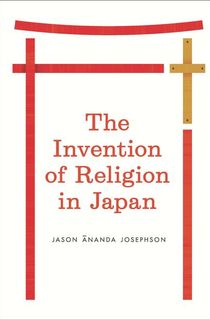
The Invention of Religion in Japan
Before American Commodore Matthew Perry arrived at its shores in 1853 and demanded Japan democratize, the country had no word for “religion.” In this captivating book, American philosopher and Japanese religions specialist Jason Ananda Josephson examines how colonialism fundamentally changed the way Japan perceives a concept that, less than two centuries ago, did not exist.
History and philosophy lovers alike will love Josephson’s book, which is as much a philosophical exploration of the relationship between language and religious belief as it is an account of Western hegemony and oppression.
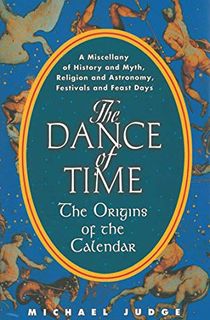
The Dance of Time: The Origins of the Calendar
How did our holidays, clocks, and other standards of timekeeping come to be? In his book, Michael Judge answers these questions by identifying the religious, historical, mythical, and astronomical influences on the Western calendar. In doing so, Judge provides rich accounts of pivotal moments in history—the rise of Christianity in Palestine, for example—while also revealing how our concept of time has been molded by such events and cultures.
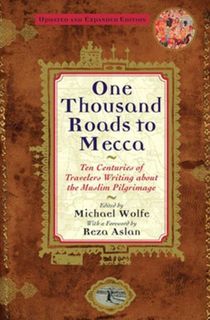
One Thousand Roads to Mecca
The Hajj, or pilgrimage to Mecca, plays a central role in the Islamic faith—and since its inception in the seventh century, the pilgrimage also appears regularly in Islamic travel literature. Michael Wolfe collects a wide array of essays that trace the long and challenging path to Mecca, from a 14th century meditation by Moroccan scholar Ibn Battuta to a present-day piece published in 2001. The result is a multifaceted, multi-century portrait of the holy tradition.

The Great Transformation
China, India, Israel, and Greece were once the four major regions of the ancient world. Within each of them, a new religion arose. China saw the beginnings of Confucianism and Taoism just as Israel preached a more monotheistic faith. India became the hub of Hinduism and Buddhism while Greece favored philosophical rationalism. New York Times-bestselling author Karen Armstrong takes an in-depth look at the birth of these four religions, their impressive longevity, and how they are the products of their early, violent times.
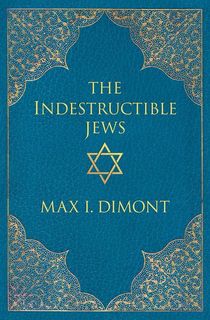
The Indestructible Jews
Regardless of your faith, Indestructible Jews offers a well-rounded perspective of the Jewish faith. Author Max I. Dimon explores the history of Judaism—including the Holocaust—and remarks on the resilience of its people despite mass expulsions, migrations, and executions. Given last year's displays of bigotry in Charlottesville, books like Dimon’s are essential to educating the ignorant, preserving history, and inspiring pride and respect for the Jewish heritage.
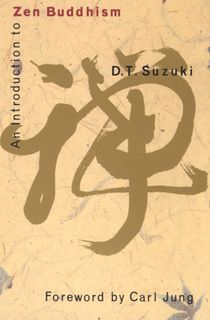
An Introduction to Zen Buddhism
Nobel Peace Prize nominee D.T. Suzuki published over one hundred works on Zen Buddhism, playing an integral role in its introduction to the western world. Here the author delivers a lively and authoritative overview of the spiritual principles of Zen and a framework for living an enlightened life. With a foreword by Dr. Carl Jung, Suzuki's An Introduction to Zen Buddhism is widely considered a classic on the subject.
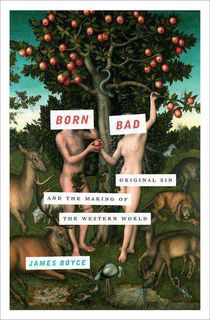
Born Bad
It's a core conceit of the Christian doctrine: We are born in sin and only through God's grace may we achieve salvation. In Born Bad, historian James Boyce examines how the concept of original sin shaped not just the Christian faith but Western civilization as a whole. Connecting St. Augustine to Sigmund Freud, Martin Luther to Richard Dawkins, Boyce delivers a rich and revealing history of Christian dogma and its impact on the world.

The Roots of Hinduism
While much is known about the Indo-Aryan roots of Hinduism, little is known about the equally culpable Indus Civilization. Despite their advanced civilization—which rivaled cities like Mesopotamia—their ancient scripts went untouched and undeciphered. Author Asko Parpola wanted to change that, and so he dedicated himself to 50 years of research on the lost Indu culture. His book finally sheds light on these forgotten roots of Hinduism, painting a dynamic portrait of the Indus through linguistic studies, archaeology, sociology, and theology.
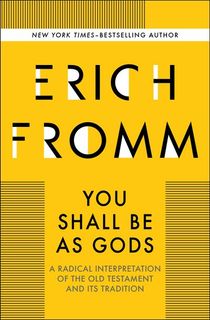
You Shall Be As Gods
In You Shall Be As Gods, bestselling author Eric Fromm applies his knowledge of psychoanalysis and philosophy to a study of the Old Testament. By taking a humanistic approach to Old Testament stories—particularly how man was divided and then united—Fromm sees it as an ode to the human spirit. The result is a uniquely optimistic perspective on one of the most heavily analyzed texts in the world.
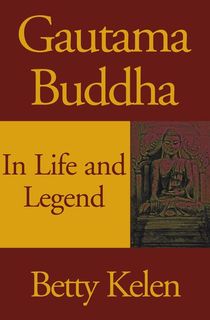
Gautama Buddha
The teachings of Gautama Buddha became the pillars of many Eastern civilizations between the 6th and 4th centuries BCE. At the heart of Gautama’s Buddhism was “The Middle Way,” whose “Eightfold Path”—a series of spiritual practices—culminated in liberation from the worldly realm. Author Betty Kelen describes such teachings in addition to examining the Buddha’s own quest for enlightenment and how he became an icon of wisdom for millions.
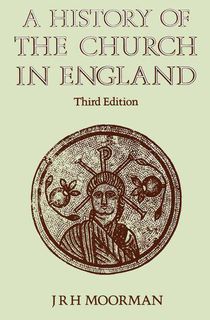
History of the Church in England
Depending on who you ask, the Church of England was founded in either AD 597 by Saint Augustine or after the schism of 1534. John Moorman traces these two stages of growth and goes on to track the Church’s evolving influence since the Roman eras. Included in this timeline are the stories behind landmark events and figures like Saint Patrick, Viking invasions, and the translation of the Bible. For someone looking for a comprehensive view of Christianity in Britain—this is your go-to.
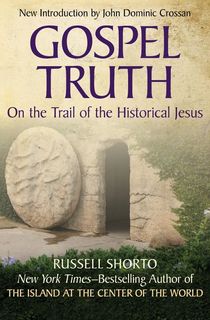
Gospel Truth
Bestselling author Russell Shorto goes beyond the holy image of Jesus Christ passed down through the centuries—He of virgin birth and resurrection—in search of a living, breathing man of modest origins who fundamentally changed the world. Applying a journalist's eye, Shorto meticulously investigates ancient texts and Christian history, crafting a biographical portrait of Jesus "stripped of the unhistorical" that will fascinate the faithful and skeptics in equal measure.

Four Volumes on Christianity
A Nobel Peace Prize winner explores the history of Christianity deeply, rigorously, and lovingly. This collection makes up some of Albert Schweitzer's most profound and influential work. Schweitzer, who won the Nobel for his philosophy of a "reverence for life", centered his thoughts about Christianity around people first and foremost–and what we owe each other. His work is not only a vital contribution to Christianity and its scholarship. It also inspired environmental activists like Rachel Carson.
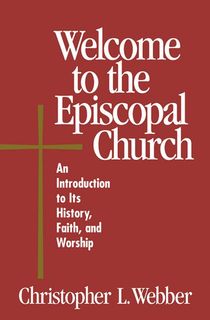
Welcome to the Episcopal Church
Episcopalism began in the years following the American Revolution, following Amercians' separation from the Church of England. Despite their newfound independence, Episcopalians retained some of their Anglican routes—mainly The Book of Common Prayer, the center of Episcopal worship. Whether you’re new to the religion or have an interest in learning more about your faith, Christopher Webber’s book is an accessible introduction to its past, present, and future—from the church’s beliefs and practices to its origins in the 18th century.
A version of this article was first published on Early Bird Books.
Featured photo: Kevin Bluer / Unsplash



